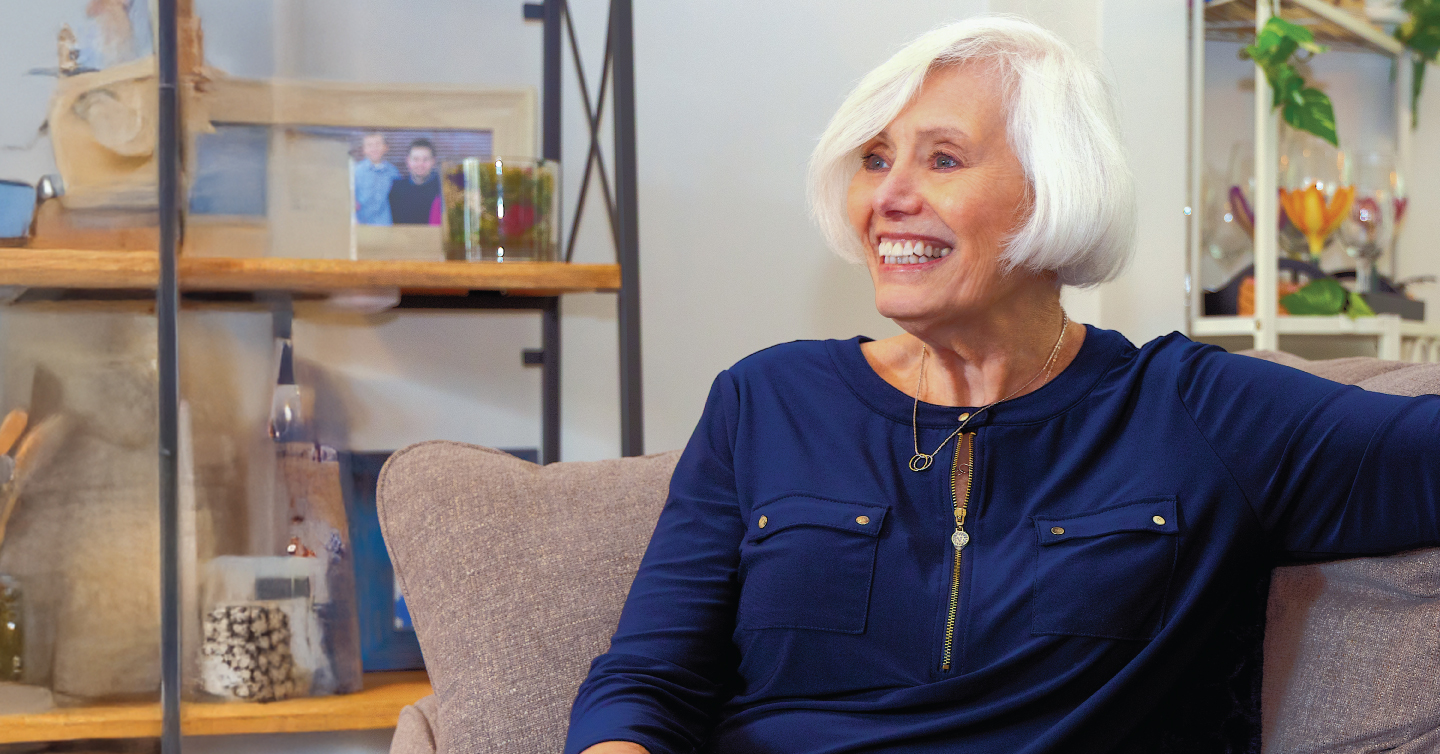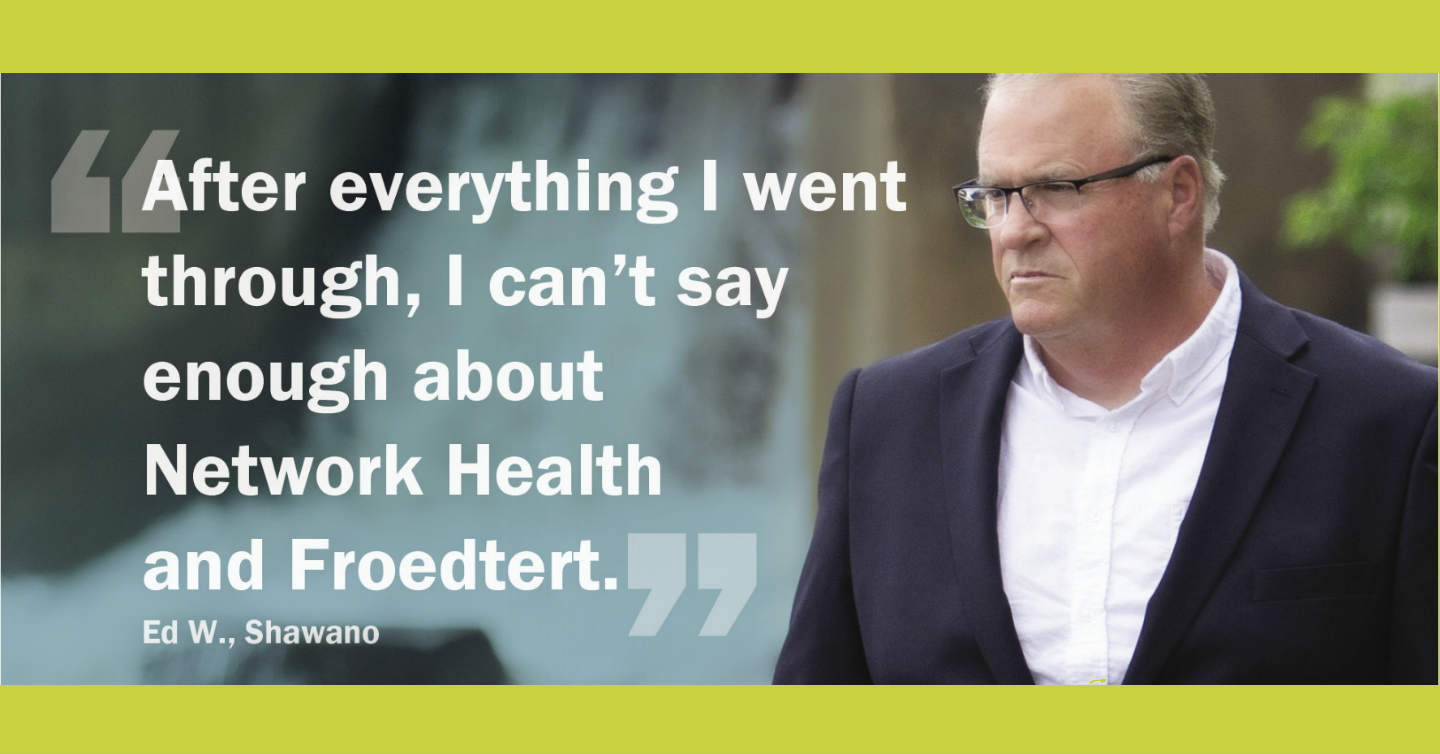For the last several years, Karen has had an unhealthy reaction to stress. “I was like a cat on a hot tin roof,” Karen said. Her back would go out, and she would become extremely irritable. Everyone reacts differently to stress, so she wasn’t too concerned.
In 2008, Karen began her own mental health counseling private practice. She enjoyed working with patients, but the brain fog she had been experiencing for years was getting worse, making it difficult to keep up with the details and deadlines involved in owning a business. She knew there was something wrong, but couldn’t pinpoint the source.
Karen spoke with her doctor about her cognitive function and unhealthy reaction to stress. It was passed off as high anxiety, however, she knew it had to be something more. In 2010, she developed kidney stones and a few months later, she went into menopause. A blood panel showed she was post-menopausal even though she never had any other symptoms. This was her first indicator that something just wasn’t right, and she needed to take action.
In 2012, Karen gave up her private practice and took a position at UW Oshkosh. A few months into her new position, she suffered from hearing loss, multiple urinary tract infections and ever-increasing back pain. Karen muddled through life like this for over a year and a half.
After years of suffering, Karen finally decided to take some time off from work in 2014 and focus on her health. After a Western blot test confirmed that she had Lyme disease, she finally had an explanation for all of her symptoms. Once the prescribed antibiotics started working, some of her symptoms were alleviated and she was looking forward to getting her life back.
Unfortunately, the kidney stones came back and her urology report mentioned multiple lesions on her liver associated with metastatic disease. A follow-up biopsy revealed a neuroendocrine tumor, which is a mass that begins in parts of the body which produce and release hormones. Because an endocrine tumor develops from cells that produce hormones, the mass itself produces additional hormones and causes serious illness. One of the trademarks of this type of cancer is dementia, which explained the brain fog and struggling with details. After a hospital stay because of a small bowel obstruction, her doctor found the primary source of her cancer, two tumors in her small intestine.
Karen found information from Network Health offering help to those with a chronic illness. “I couldn’t dial that number fast enough,” Karen said. “I couldn’t think straight, I didn’t understand insurance and I needed help.”
She was put in touch with care management coordinator, Jenni Topel, who was able to work with her to get a second opinion. Within a month of finding the tumors, Karen was in Madison having surgery. A 45-minute surgery removed 15 inches of her small intestine, her gall bladder and 13 lymph nodes, one of which was cancerous. “Now, looking back, we put all the symptoms together with the diagnosis and it all makes sense,” Karen said.
“As a patient, I’ve learned to trust my gut,” Karen said, “and Jenni has been instrumental in helping me do that.” While in Madison recovering from surgery, Karen was told about a clinical trial in Iowa.
“There really are not that many options for me,” Karen said. After six injections of Sandostatin, a drug that brings down hormone levels to alleviate symptoms, she will travel to the University of Iowa to see if she is a candidate for the clinical trial. Neuroendocrine cancers cannot be treated with chemotherapy, so a new injection consisting of Sandostatin and radiation can be given in hopes the treatment goes straight to the lesions on her liver. If all goes well, it could be a potential cure.
“People see me and think that I don’t look sick because I don’t have the traditional face of cancer,” Karen said. In order to stay as healthy as possible, she has changed her diet to be low in sugar and meat free. “Stress really kills with this one, and I am making my health my job so I can beat this,” Karen said.
She is amazed at how her circumstances have lined up to get her where she is today. She has supportive coworkers, great doctors and a comprehensive health insurance plan. “Had all this happened while I was in my private practice, it would have been horrible. I had no one to cover for me and limited choices when it came to health insurance,” Karen said.
“When you know something is wrong and doctors can’t find what it is, you feel crazy. You know your body, so you need to advocate for yourself,” Karen said. “Having another advocate, like Jenni, in your corner is great because you can’t do this on your own.”





Discussion
There are no discussions happening yet.